Getting a religious exemption from taking the so-called "Corona Vaccines"
My religious exemption was granted for my Buddhist Believes.
From the Nichiren Buddhist Library:
five components [五陰・五蘊] (Sanskrit pancha-skandha; Japanese go-on or go-un): Also, five components of life, five aggregates, or five skandhas. The five components are form, perception, conception, volition, and consciousness. Buddhism holds that these constituent elements unite temporarily to form an individual living being. Together they also constitute one of the three realms of existence, the other two being the realm of beings and the realm of the environment. (1) Form means the physical aspect of life and includes the five sense organs—eyes, ears, nose, tongue, and body—with which one perceives the external world. (2) Perception is the function of receiving external information through the six sense organs (the five sense organs plus the “mind,” which integrates the impressions of the five senses). (3) Conception is the function of creating mental images and concepts out of what has been perceived. (4) Volition is the will that acts on the conception and motivates action. (5) Consciousness is the cognitive function of discernment that integrates the components of perception, conception, and volition. Form represents the physical aspect of life, while perception, conception, volition, and consciousness represent the spiritual aspect. Because the physical and spiritual aspects of life are inseparable, there can be no form without consciousness, and no consciousness without form. All life carries on its activities through the interaction of these five components. Their workings are colored by the karma one formed in previous lifetimes and at the same time create new karma.
eightfold path [八正道・八聖道] (Sanskit ārya-ashtānga-mārga, ashtānga-mārga, or ashtāngika-mārga; Pali ariya-atthangika-magga or atthangika-magga; Japanese hasshō-dō): Also, noble eightfold path or eightfold holy path. An early teaching of Buddhism setting forth the principles for attaining emancipation. They are (1) right views, or correct views of the Buddha’s teaching; (2) right thinking, which includes right thought, right intent, and right aspiration; (3) right speech, or avoidance of falsehood, slander, abuse, and idle talk; (4) right action, or abstaining from all wrong deeds such as taking life and stealing; (5) right way of life, or living while purifying one’s thoughts, words, and deeds; (6) right endeavor, to overcome evil in one’s own life and make an uninterrupted progress in pursuing the way of truth; (7) right mindfulness, which means always aspiring for the truth and keeping its pursuit in mind; and (8) right meditation. In the doctrine of the four noble truths, the truth of the path to the cessation of suffering is regarded as the discipline of the eightfold path.
-
 11:01
11:01
The Emperors Have No Clothes
1 year agoGetting my religious exemption so I don't have to take part in medical experimentation
39 -
 2:42
2:42
Buddhist Mind
3 years agoBuddhism is the byproduct of Dharma
2031 -
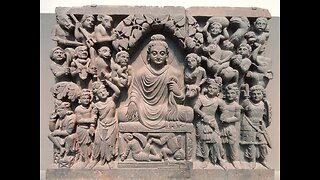 59:50
59:50
The Memory Hole
2 months agoCIA Archives: Buddhism (1958)
5792 -
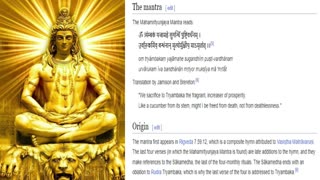 3:24
3:24
Vedic
1 year agoMahamrityunjaya mantra against death and disease
11 -
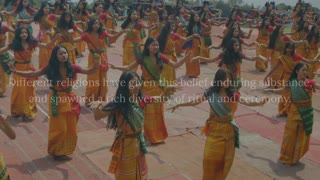 2:18
2:18
Buddhist Mind
3 years agoBuddhism: Duty of Religion
89 -
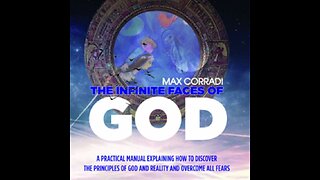 0:58
0:58
No Age Ontology
1 year agoThe Seven Laws of Reality Series: God, Pure Consciousness and Self in the Advaita Hindu tradition
63 -
 0:51
0:51
HARPAXO
1 year agoforced vaccinations at gunpoint - "are you going to allow this?"
2.66K38 -
 2:18
2:18
papagiorgio200
8 months agoThe Postmodernist and Religious Claims of Exclusivity (Ravi Zacharias)
104 -
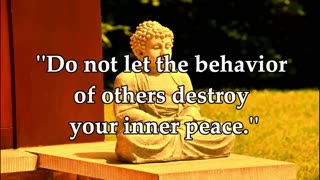 30:00
30:00
Education / Information / Values
9 months agoMost Famous Buddha Quotes On Life
631 -
 14:56
14:56
Overmanwarrior
8 months agoThe Sperm and the Pacifist Religions of Marxism
845